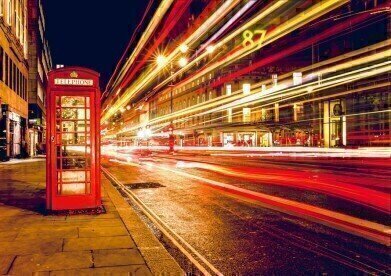Air clean up
Should Diesel Vehicles and Boilers Be Banned in London to Tackle Air Pollution?
Apr 18 2016
A joint report conducted by environmental action group Policy Exchange and King’s College London has proposed a number of measures which the next London mayor should implement to ensure that the capital meets EU air quality standards by 2025, including scrapping diesel boilers and buses.
London has consistently fallen short of the minimum requirements imposed by the EU and has been subject to economic sanctions as a result. As well as the savings engendered by complying with such regulations, the report also estimates that the improved air quality would extend average lifespans by as much as one month and save the UK economy £600m per annum in hospital bills and the suchlike in the process.
What Does the Report Say?
The report, published on Policy Exchange's website, calls for a 10-point plan to clean up the capital’s airwaves, improve air quality and reduce transport-related pollution. Here is a brief rundown of the main points proposed by the experts from King’s College London and the environmental think-tank:
- Scrap diesel buses in polluted locales. Streets such as Oxford Street (famously known as the most polluted street in Britain) should become “clean bus corridors” and use only the most efficient and environmentally friendly models.
- Reroute polluting buses. Those less environmentally friendly models should be diverted away from Oxford Street and similarly polluted areas to ensure their air quality problems don’t worsen.
- Roll out low-emissions buses in all areas of the capital. While diverting and re-routing certain buses from the most polluted areas is a step in the right direction, for London to truly clean up its airways, the whole city must use cleaner public transport.
- Promote more eco-friendly boilers. Reduce household boiler emissions by offering financial incentives for homeowners to switch to more environmentally friendly models.
- Promote EVs. Offer similar incentives for the use of electric cars and vehicles, as well as providing more widespread charging coverage for existing owners.
- Campaign for tighter emissions limits on diesel vehicles. With more and more sophisticated mobile monitoring stations for diesel emissions, it’s clearer than ever just how polluting these engines are. As such, there should be more stringent restrictions on their operation.
- Higher taxes on new diesel engines. Both cars and larger diesel vehicles should fall under a higher tax bracket to discourage new purchases.
- Adopt a cashback scheme for exchanging older models. Get more of the older, polluting vehicles off the road by offering incentives for users to trade in outdated models.
- Prevent construction of power plants near city limits. Though biogas and biomass power plants represent a more sustainable method of energy generation, they still necessarily entail the emission of damaging fumes. These should be kept away from London to avoid exacerbating the problem.
- Clean up cab fleets. With the famous London black cab dominating the streets of the capital, bringing about a transition to cleaner engines in the taxi fleet could do wonders for local air quality.
What the Experts Say
Unsurprisingly, both the chiefs of the two entities involved in compiling the report were vocal in their support of its findings – as was the chief executive of Client Earth, the law group which has been continually petitioning and prosecuting the government with regards to its inaction on air quality. Here's what they had to say:
Richard Howard, Policy Exchange energy and environment chief: “Londoners are becoming increasingly concerned about poor air quality. The time has come for action not words. The next Mayor of London needs to deliver an ambitious set of policies to clean up London’s air.”
Professor Frank Kelly, Environmental Research Group director at King’s College London: “It is possible to bring the most polluted parts of London - such as Oxford Street - within legal air quality limits. However this will require a concerted effort both by City Hall and national government to reduce emissions from road transport and other sources of pollution.”
James Thornton, Client Earth chief executive: “This important report should be required reading for all of the mayoral candidates. This public health crisis will require strong action from the new mayor, who should adopt these policies as a minimum. London’s toxic air undermines its status as a world-class city. This report is a welcome attempt to change that and help Londoners breathe more easily.”
Events
Jul 23 2025 Sydney, Australia
Aug 24 2025 Stockholm, Sweden and online
Aug 27 2025 Busan, South Korea
Sep 02 2025 Mexico City, Mexico
Sep 02 2025 Mexico City, Mexico














